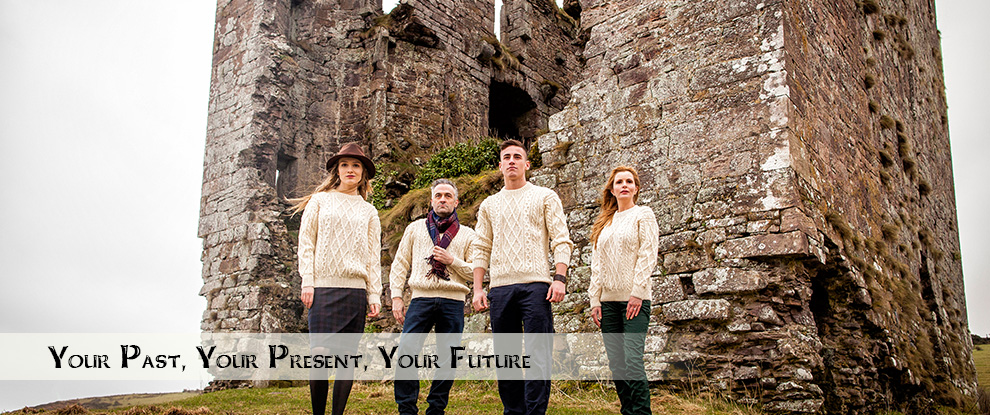ClanAran Irish Wool Sweaters

Each ClanAran sweater is lovingly hand knit using your family’s own unique pattern. Typically up to 2.2 pounds heavier than that of their machine loomed counterparts and made from the highest quality of traditional báinín wool, each piece is a beauty to behold.
The elaborate process of hand knitting, as well as the crossing over of the intricate Aran stitches, causes a raised effect in the wool, thus giving more warmth and insulation to the wearer. Each ClanAran can take up to 40 hours of craftsmanship, making it the perfect gift for those that value a more quality and premium garment, inspired by heritage.